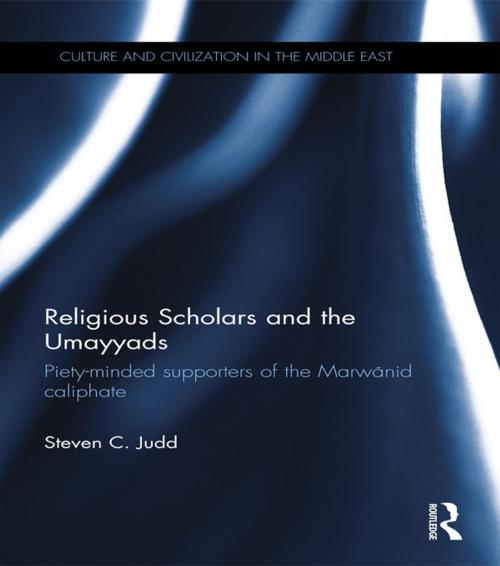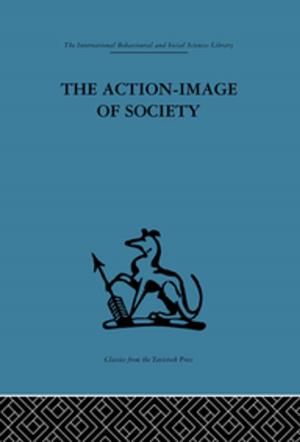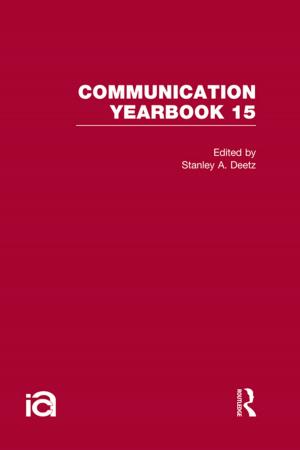Religious Scholars and the Umayyads
Piety-Minded Supporters of the Marwanid Caliphate
Nonfiction, History, Middle East, Social & Cultural Studies, Social Science| Author: | Steven Judd | ISBN: | 9781134501786 |
| Publisher: | Taylor and Francis | Publication: | October 1, 2013 |
| Imprint: | Routledge | Language: | English |
| Author: | Steven Judd |
| ISBN: | 9781134501786 |
| Publisher: | Taylor and Francis |
| Publication: | October 1, 2013 |
| Imprint: | Routledge |
| Language: | English |
Religious Scholars and the Umayyads analyzes legal and theological developments during the Marwānid period (64/684--132/750), focusing on religious scholars who supported the Umayyads. Their scholarly network extended across several generations and significantly influenced the development of the Islamic faith. Umayyad qādòīs, who represented the intersection of religious authority and imperial power, were particularly important.
This book challenges the long-standing paradigm that the emerging Muslim faith was shaped by religious dissenters who were hostile to the Umayyads. A prosopographical analysis of Umayyad-era scholars demonstrates that piety and opposition were not necessarily synonymous. Reputable scholars served as qādòīs, tutors and advisors to Umayyad caliphs and governors. Their religious credentials were untarnished by their association with the Umayyads and they appear prominently in later hòadīth collections and fiqh works.
This historiographical study demonstrates that excessive reliance on al-Tòabarī’s chronicle has distorted the image of the Umayyads. Alternatively, biographical sources produced by later hòadīth scholars reveal a rich tradition of Umayyad-era religious scholarship that undermines al-Tòabarī’s assumptions. Offering a better understanding of early Islamic religious development, this book is a valuable resource for students and researchers in the fields of Islamic history, Islamic legal studies and Arabic historiography.
Religious Scholars and the Umayyads analyzes legal and theological developments during the Marwānid period (64/684--132/750), focusing on religious scholars who supported the Umayyads. Their scholarly network extended across several generations and significantly influenced the development of the Islamic faith. Umayyad qādòīs, who represented the intersection of religious authority and imperial power, were particularly important.
This book challenges the long-standing paradigm that the emerging Muslim faith was shaped by religious dissenters who were hostile to the Umayyads. A prosopographical analysis of Umayyad-era scholars demonstrates that piety and opposition were not necessarily synonymous. Reputable scholars served as qādòīs, tutors and advisors to Umayyad caliphs and governors. Their religious credentials were untarnished by their association with the Umayyads and they appear prominently in later hòadīth collections and fiqh works.
This historiographical study demonstrates that excessive reliance on al-Tòabarī’s chronicle has distorted the image of the Umayyads. Alternatively, biographical sources produced by later hòadīth scholars reveal a rich tradition of Umayyad-era religious scholarship that undermines al-Tòabarī’s assumptions. Offering a better understanding of early Islamic religious development, this book is a valuable resource for students and researchers in the fields of Islamic history, Islamic legal studies and Arabic historiography.















